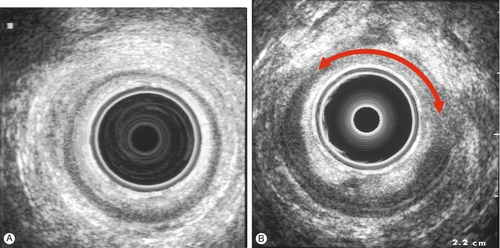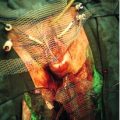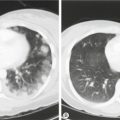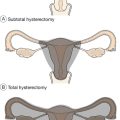31
Postnatal care
Introduction
The puerperium is defined as being from delivery of the placenta to the end of the 6th postnatal week. This arbitrary definition, however, has no true physiological basis, as some pregnancy changes revert to the pre-pregnancy state within a few minutes, whereas others never revert.
The uterus contracts within a few minutes of delivery from a cavity capable of containing 4 or 5 litres to a space barely able to contain an adult’s fingers. It involutes over the next 4 weeks, its weight reducing from 1000 g to just 50–100 g, with the lochial discharge changing from red to brownish pink and finally cream/white. Maternal weight reduces, plasma volume, red cell mass and haemostasis revert to normal, and the other systemic, endocrine and metabolic adaptations return to the pre-pregnancy state. Lactation, instigated by the falling progesterone levels and maintained by oxytocin, can inhibit the return of menstruation and fertility until weaning.
Routine postnatal assessment is useful to help provide the mother with support as she cares for her baby, and to identify complications at an early stage.
Normal puerperium
For those giving birth in hospital, the postnatal stay should be tailored to each individual mother. The length of this stay depends largely on maternal wishes and on her clinical condition, and may be anything from an immediate discharge to several days or longer. Difficulties with establishing breastfeeding or bonding, the development of medical problems, poor social circumstances or lack of home support, may all warrant additional inpatient stay and support.
If the woman is rhesus-negative, a Kleihauer test should be performed and the baby’s blood group determined to establish whether anti-D prophylaxis is required and, if so, the appropriate dose. The mother should also be offered rubella vaccination if she was identified as not being immune from routine antenatal serological testing.
Early postnatal checks
In the UK, the midwife sees the woman regularly after birth, based on individual needs, and checks on:
![]() general emotional and physical well-being
general emotional and physical well-being
![]() infant feeding and care – breastfeeding should be encouraged where possible
infant feeding and care – breastfeeding should be encouraged where possible
![]() urinary and bowel function (see below)
urinary and bowel function (see below)
![]() lochia – this may continue for up to 4–8 weeks
lochia – this may continue for up to 4–8 weeks
![]() contraceptive plans.
contraceptive plans.
In the early postnatal days, all women should be given the opportunity to discuss their birth with the appropriate healthcare professional.
On examination, the following should be undertaken as a matter of routine:
![]() pulse, blood pressure and temperature, looking for signs of haemorrhage, anaemia or sepsis
pulse, blood pressure and temperature, looking for signs of haemorrhage, anaemia or sepsis
![]() abdominal examination should be carried out if there are any concerns to ensure that the uterus is involuting and non-tender. On the first day after birth, the uterine fundus should be palpable at the umbilicus and it gradually reduces in size until, by the 10–14th day, it is no longer palpable above the symphysis pubis
abdominal examination should be carried out if there are any concerns to ensure that the uterus is involuting and non-tender. On the first day after birth, the uterine fundus should be palpable at the umbilicus and it gradually reduces in size until, by the 10–14th day, it is no longer palpable above the symphysis pubis
![]() perineum examination, looking particularly for evidence of wound breakdown in those who have experienced perineal trauma and/or received sutures. Cool gel packs may be applied intermittently, although ice packs are not advocated. Simple analgesia can be prescribed and local anaesthetic gels or sprays may sometimes alleviate discomfort.
perineum examination, looking particularly for evidence of wound breakdown in those who have experienced perineal trauma and/or received sutures. Cool gel packs may be applied intermittently, although ice packs are not advocated. Simple analgesia can be prescribed and local anaesthetic gels or sprays may sometimes alleviate discomfort.
A midwife will see a woman for a minimum of 10 days and up to 28 days. In some regions, the duration of postnatal visits has been extended to 6 weeks, to incorporate the 6-week examination.
Late postnatal check
This usually takes place around 6 weeks after birth and is an opportunity to review the birth, address any questions and place these in context for future births. It is important to assess the baby and how well the mother is coping, looking particularly for tiredness or depression.
The maternal haemoglobin concentration may be determined and cervical cytology performed, as appropriate. Contraception is discussed and enquiries made about whether intercourse has resumed and, if so, whether any specific difficulties were encountered.
Postnatal problems
Anaemia
The incidence of postnatal anaemia is 25–30%. It is reasonably simple to treat non-symptomatic anaemia with oral iron supplements, reserving blood transfusion for those with significant symptoms, usually with a haemoglobin concentration < 7 g/dL.
Bowel problems
Constipation may be due to a number of factors, including fear of defecation following perineal trauma, reduced mobility, oral medications such as iron or codeine or narcotic analgesia received in labour. Constipation is reported by up to 20% of women in the puerperium. Haemorrhoids also affect around 20% of women and these often persist for some time after birth. They are more common in primiparous women and following an instrumental delivery.
Breast problems
Two-thirds of women will have a problem relating to their breasts, including nipple pain, nipple cracks, bleeding from the nipple, breast engorgement, mastitis and breast abscesses. For women who are not breastfeeding, suppression of lactation is often a problem with engorgement generating symptoms of discomfort. For breastfeeding women, problems can largely be prevented by proper advice regarding positioning of the baby’s mouth and supportive counselling. If mastitis occurs, it is usually the result of a blocked duct and frequently requires antibiotic treatment aimed at Staphylococcus aureus.
Perineal breakdown
This is not uncommon, but long-term problems are fortunately rare. If the wound is clean, resuturing may be considered. If there is any suggestion of infection, which is usually the case, it is better to allow healing by secondary intention and antibiotics should be considered when cultures from the lower genital tract are positive.
Incontinence
In the first year after birth, 3–5% of women experience urinary tract infection and about 5% report urinary frequency for the first time. Low-grade urinary tract infection is sometimes precipitated after catheterization, which accompanies all operative deliveries and some spontaneous births.
At least 20% of women suffer from urinary incontinence if assessed 3 months after birth. This is mostly from neurapraxia (impaired pudendal nerve function due to compression) and commonly resolves spontaneously. However, a small percentage of women will not fully regain urinary continence and will require additional help from a physiotherapist or gynaecologist.
Inability to control flatus or faeces occurs in around 5% of women after birth, but as it is embarrassing, women may be reluctant to mention it. According to endo-anal ultrasound studies, up to 35% of primiparae undergoing a vaginal birth have damage to the anal sphincters (obstetric anal sphincter injury, OASIS) although such damage may be asymptomatic (Fig. 31.1). Both OASIS and nerve damage following spontaneous or instrumental delivery contribute to the problem. Investigation and treatment of symptoms is warranted, particularly if they persist beyond the initial few postnatal weeks.

Fig. 31.1Anal sphincter damage on endo-anal ultrasound.
(A) Normal anal sphincter scan. (B) Anterior anal sphincter defect between the 10 o’clock and 3 o’clock position.
Psychiatric problems in the puerperium
These range from ‘the blues’, which can be so common as to be considered normal, to postnatal depression and to the much more serious puerperal psychosis, which is rare and can have fatal consequences.
‘The postnatal blues’ or ‘baby blues’
This occurs in over 50% of women, usually beginning on days 2–4, peaking at days 4–6 and lasting for 2–7 days. It is a mood disturbance rather than a mood illness, which may have a hormonal basis, and it is unrelated to obstetric or cultural factors. There is emotional lability, tearfulness, sadness, sleep disturbance, poor concentration, restlessness and headaches. The mother may feel vulnerable and/or rejected, and may show undue concern for the baby. Explanation, reassurance and support is required until the symptoms spontaneously resolve.
Postnatal depression
The incidence of postnatal depression is between 10% and 25% in the first postnatal year, with the peak onset around weeks 3–4. In two-thirds of women, the illness is self-limiting; in one-third it may be sustained or severe. There are the usual features of depression, but particularly increased irritability, tiredness, decreased libido, guilt at not loving or caring enough for the baby, inability to cope with the baby or undue anxieties over the baby’s health and feeding. There is no recognized biochemical explanation for postnatal depression but there are a number of social and psychological factors, including social isolation, a past history of depression or psychological disturbance. Encouraging women to talk about their feelings to a non-judgemental person has been demonstrated to increase their likelihood of early recovery. If depression is suspected, assessment using a screening tool, such as the Edinburgh Postnatal Depression Scale (EPDS), may be useful to identify women who may be suffering from depression, so appropriate diagnosis and referral can be made. Treatment depends on severity, circumstances and patient preferences, but includes psychotherapy, counselling and antidepressants. The prognosis for recovery is generally good.
Puerperal psychosis
This has an incidence of 1:500–1:800 deliveries, beginning around days 3–7 and peaking at 2 weeks. There may be serious risks to both the mother and child. Up to 5% of affected women commit suicide and some may kill their baby. There are variable psychotic symptoms, sometimes superimposed upon postnatal blues. The clinical picture is a shifting one, often ushered in by one or two nights’ insomnia. Mood abnormality is common and the mother may be suspicious, sometimes denying the pregnancy and baby. There may be delusions, hallucinations, confusion and cognitive impairment. The condition is particularly associated with a past history of psychosis (especially manic depression). Mother and baby should be admitted to a specialized mother and baby unit within a hospital setting, under the care of a psychiatrist. The prognosis is good for the incident episode, particularly if the family is supportive. Treatment will include antipsychotic medication. Up to 20% of those who become pregnant again will develop a further puerperal psychosis. Approximately half will experience another psychotic episode at some time in their life.
Puerperal pyrexia
This is defined as a temperature of > 38°C on any occasion in the first 14 days after birth, although a slight fever is not uncommon in the first 24 h. Pyrexia is usually due to urinary or genital infections (including endometritis, the classical cause of puerperal sepsis) but may also be related to infection in the chest or breast. Deep venous thrombosis and pulmonary thromboembolism should be considered as a cause of pyrexia. After a full clinical examination (including breasts, legs, perineum, chest and abdominal palpation of the uterus) a mid-stream specimen of urine, and endocervical and wound swabs, as appropriate, are sent for microbiological analysis. A chest infection necessitates physiotherapy and sputum should also be sent for culture. Blood cultures are taken if the woman is systemically unwell.
Sepsis represents a major cause of maternal morbidity and mortality and it is important to be vigilant to any indication of infection in the postnatal period. Risk factors for puerperal sepsis include maternal obesity, caesarean section and carriage of Group A Streptococcus. If the mother is unwell (pyrexia, tachycardia, hypotension, occasionally hypothermia, confusion), treatment should be started with broad-spectrum antibiotics and fluid resuscitation without delay, with further investigation as necessary, in conjunction with advice from specialists in microbiology and other specialties as indicated by the likely source of infection. Mastitis and breast abscess are particularly common in the puerperium and may be overlooked. Antibiotic therapy may be required for breast infections and breastfeeding or hand expression should continue if possible. A breast abscess may require surgical incision and drainage.
Secondary postpartum haemorrhage
See page 283.
Venous thromboembolism
The puerperium is the period in which women are at the highest risk of developing venous thromboembolism. Women with risk factors, such as raised BMI or those who are post-caesarean section, are at particular risk and thromboprophylaxis with graduated compression stockings and low molecular weight heparin (LMWH) are widely prescribed. It is important to encourage early mobilization and avoid dehydration. Venous thromboembolism can present as a deep venous thrombosis (DVT) or pulmonary embolus (PE). Signs and symptoms of DVT include swelling, redness and pain in the leg or calf but may be asymptomatic, whereas a PE is accompanied by dyspnoea, chest pain and sometimes cardiorespiratory collapse. Prompt diagnosis and treatment, usually with LMWH is essential.
Superficial thrombophlebitis affects about 1% of women. There is a painful, erythematous and tender (usually varicose) vein. Treatment is with support stockings and antiinflammatory drugs.




